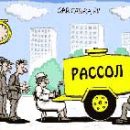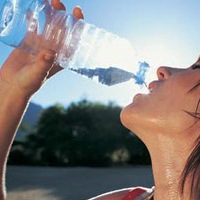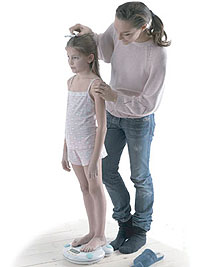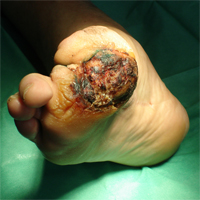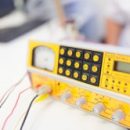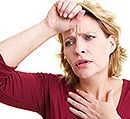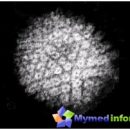The prevention of hypoglycemia implies control of blood sugar levels and increased attention to diabetes symptoms. How to organize diagnostics and treatment of syndrome «Hypoglycemia»? Blood tests for sugar and self-control - whether they are quite informative? Article about it.
Content
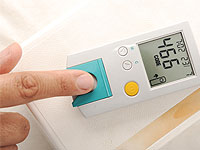 Symptoms of hypoglycemia sometimes begin very slowly, sometimes, on the contrary, developing suddenly, but always represent a pathological condition, in which the glucose concentration becomes below the threshold value 3.5 mmol / l.
Symptoms of hypoglycemia sometimes begin very slowly, sometimes, on the contrary, developing suddenly, but always represent a pathological condition, in which the glucose concentration becomes below the threshold value 3.5 mmol / l.
The clinical manifestations of the hypoglycemic syndrome are noted by dehydrating the body, excitement, fear and anxiety, the patient feels excessive sweating and rapid heartbeat, experiencing muscle tremor and feeling of hunger, and the pallor of the skin is usually accompanied by dizziness and even fainting.
Hypoglycemia is characterized by a significant drop in blood sugar levels, which causes the disorder of the functioning of many organs. Especially sensitive to the decrease in glucose is the human brain, through the nervous system it sends a signal to adrenalines, which in response begin to produce adrenaline. As a result of a similar mechanism, the hepatic carbohydrate glycogen is actively processed in glucose, so all these processes lead to a minor increase in sugar and improving the patient's condition.
Symptoms and causes of hypoglycemia
Adrenaline, contributing to the release of sugar, causes such symptoms of anxiety, like nervousness, trembling, sweating, reinforced heartbeat and dizziness. In the case of severe hypoglycemia, there is a decrease in glucose admission to the brain, this leads to weakness, headache and even change behavior. Sometimes this pathological reaction can be taken for the state of alcohol intoxication: there is a disorder of vision, inadequate behavior, convulsions and coma, long hypoglycemia leads to serious and irreversible damage to the braincale. Most often, such a condition is noted in people using insulin or sugar-containing drugs for treatment of diabetes. It should be noted that patients with diabetes are very prone to hypoglycemia. Significant overdose may result in:
- focal neurological disorders;
- epileptiform seizures;
- loss of consciousness due to a room;
- death at the insulin dose of more than 100.
The causes of the occurrence of hypoglycemia may be excessive insulin with pancreatic cells, impaired pituitary function or adrenal glands, a change in carbohydrate exchange. Such a state may be associated with the reception of drugs, for example, salicylates and some antibiotics, in the case of long starvation, as a reaction to meals.
The emergence of hypoglycemia often accompanies severe alcohol intoxication, violation of norms and diet, it happens in the presence of pituitary disease, hypothalamus or adrenal glands. Alimentary hypoglycemia occurs after the operation on the stomach during periods between meals, autoimmune diseases, renal or cardiac decompensation, malignant tumor can be caused.
On the diagnosis, treatment and prevention of hypoglycemia
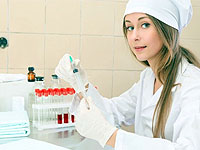 The diagnosis of hypoglycemia is a study of the history of the disease, a laboratory survey of the level of hypoglycemia, blood tests for sugar, so, the low blood glucose content in combination with clinical signs confirms the diagnosis of endocrinologists and therapists.
The diagnosis of hypoglycemia is a study of the history of the disease, a laboratory survey of the level of hypoglycemia, blood tests for sugar, so, the low blood glucose content in combination with clinical signs confirms the diagnosis of endocrinologists and therapists.
Hypoglycemia treatment implies immediate intravenous administration of 40% glucose or glucagon, sugar use or something sweet, patient recommended to have with you «Sweet aid kit», Where lollipops include, a few pieces of sugar, glucose tablets, it is desirable to have a sweet drink or juice packaging, cookies and a sandwich. For a few minutes, the patient becomes easier, in severe cases, sugar use is aligned with food intake. The introduction of a glucagon protein hormone, which stimulates the formation of glucose from carbohydrates, namely from glycogen in the liver, its one-time injection restores blood sugar content for 10-15 minutes. Self-controller is required before bedtime, the glucose level should not be below 5.5-5.7 mmol / l, on long-distance travel and hikes, patients need to have an ampoule of glucagon and syringe. It should be remembered that fast «Sugarovyovy» The effect is pure glucose, sucrose, but not fructose.

